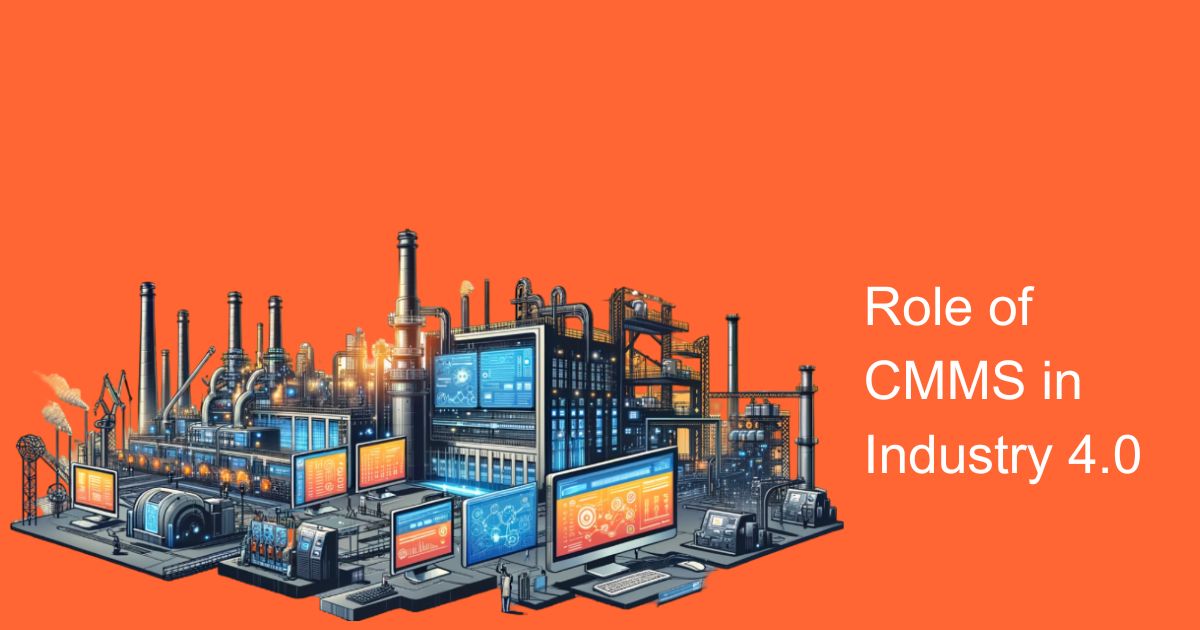Introduction
The Role of CMMS in Industry 4.0, In the realm of modern industrial operations, the convergence of digital technologies and traditional manufacturing processes has given rise to what is commonly known as Industry 4.0. This fourth industrial revolution has brought forth a paradigm shift, characterized by the integration of cyber-physical systems, the Internet of Things (IoT), cloud computing, and artificial intelligence (AI) into the industrial landscape. Amidst this transformative era, one tool stands out for its pivotal role in optimizing operations and maximizing efficiency: Computerized Maintenance Management Systems (CMMS).
Understanding CMMS:
Computerized Maintenance Management Systems (CMMS), at its core, is a software solution designed to streamline maintenance management processes within an organization. It serves as a centralized hub for scheduling, tracking, and managing maintenance activities related to equipment, machinery, and assets. Traditionally, maintenance management relied on manual methods, leading to inefficiencies, errors, and increased downtime. However, CMMS automates and enhances these processes, facilitating proactive maintenance, reducing downtime, and extending the lifespan of critical assets.
Integration with Industry 4.0 Technologies:
In the context of Industry 4.0, CMMS plays a crucial role in harnessing the power of digital technologies to drive operational excellence. By integrating with IoT sensors embedded within machinery and equipment, CMMS enables real-time monitoring of asset health and performance. This proactive approach allows maintenance teams to anticipate potential failures, schedule preventive maintenance, and avoid costly downtime.
Furthermore, CMMS leverages AI and machine learning algorithms to analyze maintenance data, identify patterns, and generate actionable insights. These insights empower organizations to optimize maintenance schedules, allocate resources efficiently, and make data-driven decisions to enhance overall productivity.
The Role of CMMS in Industry 4.0 in the Indian Perspective:
In India, the adoption of Industry 4.0 technologies is gaining momentum across various sectors, including manufacturing, automotive, pharmaceuticals, and infrastructure. With the government’s initiatives such as “Make in India” and the increasing focus on digitization, Indian industries are embracing automation and digital transformation to stay competitive in the global market.
CMMS holds immense potential in the Indian industrial landscape, particularly in addressing the challenges of aging infrastructure, resource constraints, and the need for operational efficiency. By implementing CMMS solutions, Indian companies can:
Enhance Asset Performance:
With CMMS, organizations can optimize asset utilization, minimize downtime, and extend the lifespan of critical machinery and equipment. This is particularly significant in sectors such as manufacturing, where equipment reliability directly impacts production output.
Improve Regulatory Compliance:
In highly regulated industries such as pharmaceuticals and food processing, compliance with stringent quality and safety standards is paramount. CMMS enables organizations to maintain comprehensive records of maintenance activities, audits, and inspections, ensuring adherence to regulatory requirements.
Optimize Resource Utilization:
By leveraging CMMS data analytics capabilities, Indian industries can identify opportunities to optimize resource allocation, reduce maintenance costs, and improve overall operational efficiency. This is especially beneficial for small and medium-sized enterprises (SMEs) striving to compete in a dynamic market environment.
Facilitate Remote Monitoring and Management:
With the widespread availability of high-speed internet connectivity and mobile technologies in India, CMMS enables remote monitoring and management of assets across geographically dispersed locations. This is particularly relevant in sectors such as utilities and infrastructure, where the maintenance of distributed assets poses logistical challenges.
Conclusion:
As India continues its journey towards becoming a global manufacturing powerhouse, the role of CMMS in driving efficiency, productivity, and competitiveness cannot be overstated. By embracing Industry 4.0 principles and leveraging advanced maintenance management solutions, Indian industries can overcome challenges, seize opportunities, and emerge as leaders in the digital era. With proactive maintenance strategies powered by CMMS, organizations can unlock new levels of operational excellence, paving the way for sustainable growth and prosperity in the years to come.








